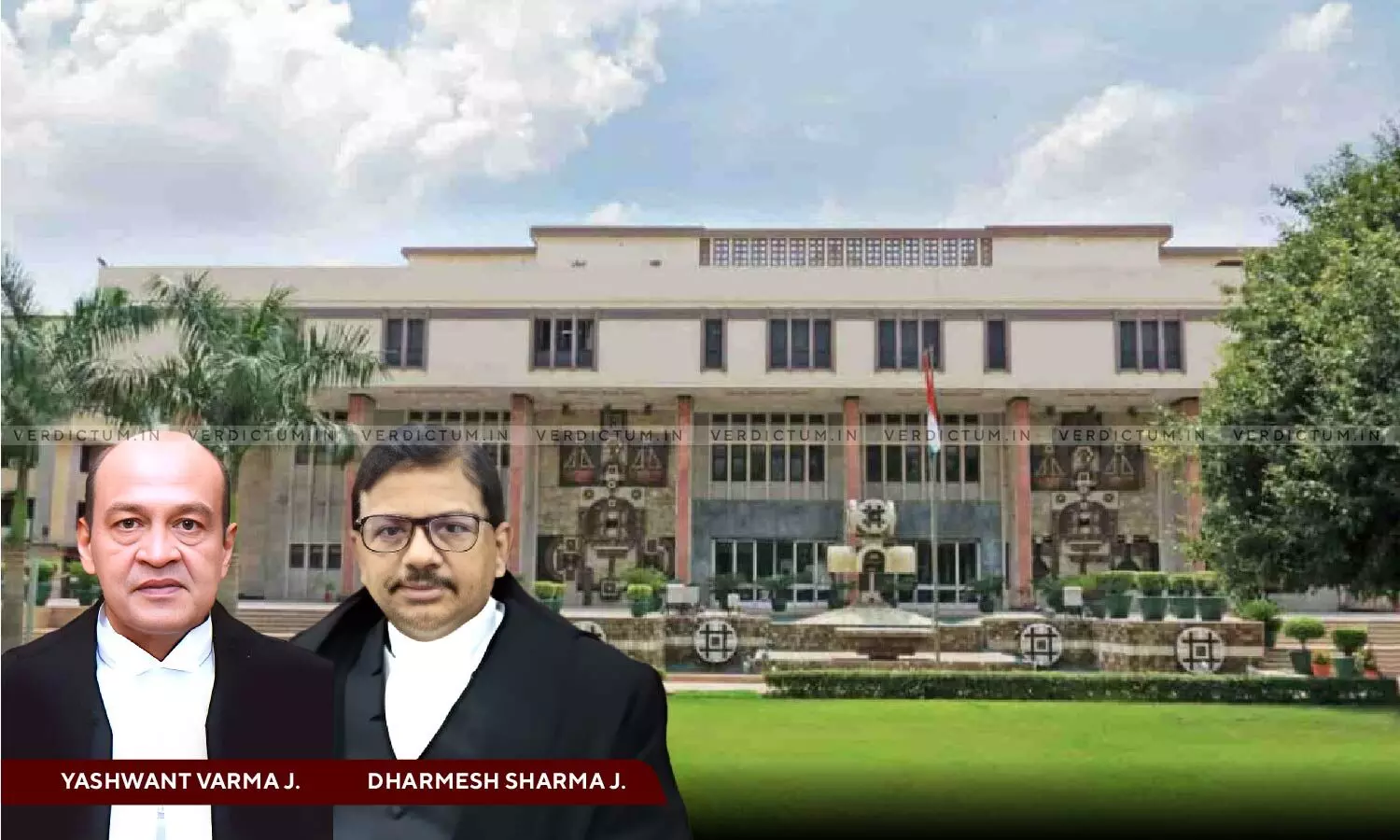
Examination & Opposition Process Under Patents Act Are Independent & Separate, Though Structured To Proceed Parallelly: Delhi HC
 |
|The Delhi High Court observed that the examination and opposition process under the Patents Act are independent and separate, though statutorily structured to proceed parallelly.
The Court allowed an appeal filed by Novartis AG against the Single Bench judgment that a pre-grant opponent would have the right to represent against both voluntary amendments as well as those that may be directed by the Controller.
In that context, the Bench of Justice Yashwant Varma and Justice Dharmesh Sharma specified that, "Unlike an adversarial process, the opposition merely contributes to the overall assessment of the patent application and thus would not sustain a right of hearing being claimed in the examination process. The opponent's right to a hearing is circumscribed by the grounds specified in Section 25(1). The right of hearing is tethered to the grounds articulated in the opposition, ensuring that the opponent has a platform to present arguments and evidence in connection with the challenges they have raised. This reinforces our view that the opponent's right to a hearing pertains specifically to the representation stage and does not grant them the entitlement tointervene in the broader examination process."
It was further explained that, "the right of hearing that is contemplated in Rule 55(5) is one which is concerned solely with the adjudication and disposal of the representation for opposition. The opponent cannot be countenanced to have a right of hearing in the examination process merely because the statute confers such an opportunity at the stage where the Controller is considering the representation. While the pre grant opposition indisputably facilitates the decision-making function of the Controller, we find ourselves unable to accept the contention that the opponent must consequentially be recognised to have the right of participation or audience in the examination process."
With that context, it was further said that, "the opponent stands conferred a right to raise objections once the application is advertised. However, the examination process comprises of an independent evaluation and assessment of the patent application. The said exercise is not dependent upon an objection that may be raised. The provisions contained in Chapter IV of the Act do not envisage opponents or objectors being accorded an audience either before the examiner or the Controller. Consequently, the question of denial of a right of hearing does not arise at all."
Counsel Hemant Singh, along with others, appeared for the appellant, while Counsel J Sai Deepak, along with others, appeared for the respondents.
In this case, Novartis AG filed an appeal contesting a previous ruling by a Single Judge in favor of Natco Pharma.
The original petition, submitted by Natco Pharma, pertained to pre-grant opposition proceedings against Novartis AG's patent application. The dispute arose when the Assistant Controller rejected Natco's request for cross-examination of Novartis' witnesses. The Single Judge allowed Natco to submit affidavits from its experts in response to the three expert affidavits presented by Novartis.
The High Court observed that the Patents Act is fundamentally concerned with the examination and evaluation of the patent application by the examiner and the Controller. With that background, it was observed that, "That is an obligation placed upon the Controller and one which is disassociated from opposition proceedings".
The Court also stressed that the pre grant opponent merely aids the Controller in a holistic examination of the patent application, and the the representation for opposition is principally aimed at aiding and facilitating the examination of the patent application. To that context, it was further specified that, "The representation is per se neither adversarial nor contentious....the opponent can assert a right of hearing only in respect of the representation and cannot be recognised to have a right to intervene in the examination process."
Subsequently, it was held that the impugned judgment failed to test the allegation of violation of the natural justice principles on the bedrock of prejudice and manifest injustice, and that the examination and opposition process though statutorily structured to proceed parallelly are independent and separate.
Accordingly, the appeal was allowed.
Cause Title: Novartis AG vs Natco Pharma Limited & Anr.
Click here to read/download the Judgment